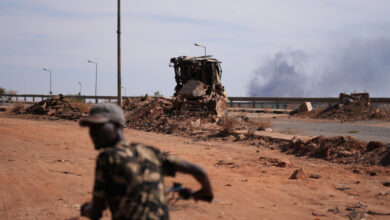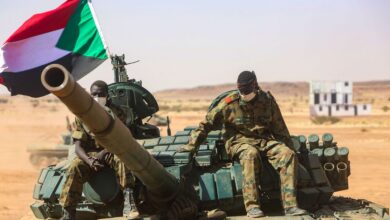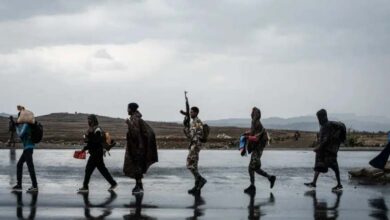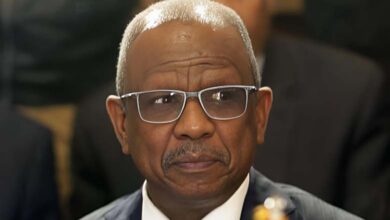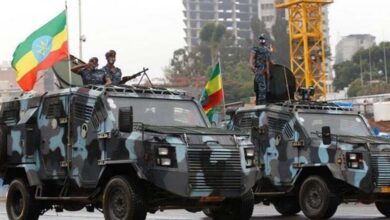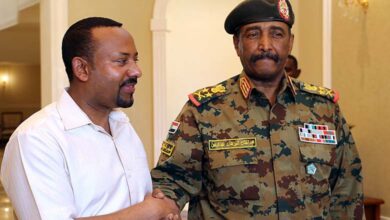The Sudanese Army’s Defeat in El-Fasher… A Defeat of Repression, Not Just a Battlefield Loss
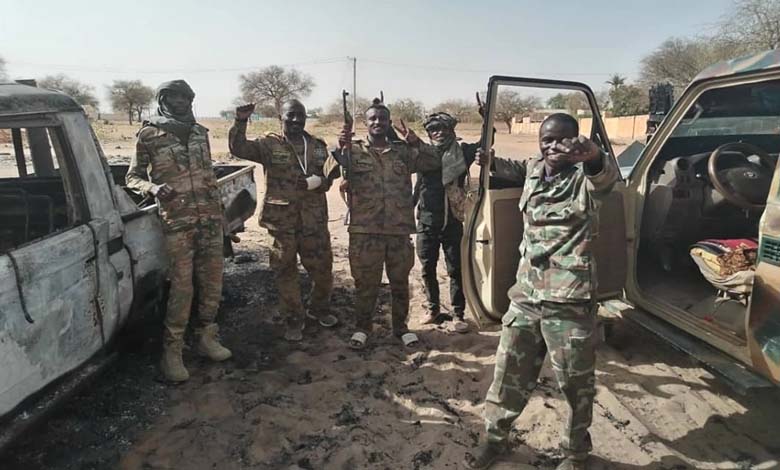
What happened in El-Fasher was not a conventional military defeat, but a political and moral collapse of an institution that has lost its people’s trust. Once a national force, Sudan’s army has turned into a repressive tool in the hands of a handful of generals implicated in crimes against civilians. El-Fasher, a city that withstood abuse for decades, has now witnessed a turning point that proves an army that turns its guns on its own people cannot withstand a real confrontation.
-
Sudan War: The Flames Encircle El-Fasher from All Sides and ‘Path of Hope’
-
Postponed Clash in Sudan: A Brewing Battle for Power and Loyalty Between the Army and Its Allies
An Army Without a National Project
This defeat did not happen in a vacuum. Since the fall of Omar al-Bashir’s regime, the Sudanese army has failed to rebuild itself on professional foundations. It is mired in internal power struggles and shady alliances with remnants of the former regime. Its objective is no longer to protect borders or defend citizens, but to safeguard the interests of generals enriching themselves at the expense of Sudanese blood.
In Darfur, civilians have been the primary victims of these policies—indiscriminate shelling, arbitrary detentions, and ongoing campaigns of intimidation. These actions turned the local population against the army long before it lost on the battlefield.
-
Sudan at a Crossroads: Islamists Back the Army to Prolong Military Rule
-
Appointing Al-Bashir’s Lawyer as Justice Minister Signals Return of Former Regime Figures
El-Fasher… A Message from the People and the Battlefield
The army’s defeat in El-Fasher sends a clear message to all who try to rule by force: you cannot win a war against your own people. For the residents of El-Fasher, the army’s downfall felt like justice. The very forces that once claimed to “protect the homeland” were the ones violating their rights.
An army lacking a national doctrine cannot stand against a group like the Rapid Support Forces, which—despite their dark record—exploited the army’s weakness and internal divisions to their advantage.
-
Al-Burhan Seeks to Contain Potential Crisis over Chemical Weapons Use
-
Al-Burhan Reshuffles Ministries by Force: A New Power Grab Threatens Sudan’s Peace Process
The Political Dimension of Defeat
This is not merely a military loss—it is a political defeat as well. Abdel Fattah al-Burhan, who controls the army, has now lost his strongest bargaining chip in negotiations with regional and international powers. The loss has indirectly strengthened the Rapid Support Forces, now seen as an equal or even superior force in some areas.
Politically, this defeat will further isolate Burhan, and may even push some of his regional allies to look for alternatives after seeing the army’s weakness and inability to secure decisive control.
The Real Enemy Wasn’t in El-Fasher
The harsh truth is that the army’s main enemy was not the Rapid Support Forces, but its own failed leadership and deviation from its true role. Had the army gained civilians’ trust and protected Darfur instead of oppressing it, it would be a powerful and unified force today—not a defeated one scrambling for foreign support to maintain relevance.
-
The Two-Government Scenario Raises Fears of Sudan’s Partition
-
In the Name of the Army… Brotherhood Militias Executing Civilians in the Streets… UN Sounds the Alarm
What Comes After El-Fasher?
The defeat in El-Fasher may mark the beginning of a fundamental shift in Sudan’s military and political dynamics. We may see:
- The complete breakdown of army authority in Darfur
- Growing calls to restructure the armed forces on a professional basis
- Increased international pressure on warring parties to reach a comprehensive settlement
El-Fasher is not the end of a battle, but the start of a new chapter that may shape Sudan’s future for decades. The Sudanese army did not lose because it was weaker than the Rapid Support Forces—but because it chose to fight its own people before facing its real opponents.
Unless a new military institution is built on genuine national principles, any military victory will be an illusion, and every defeat will be a lasting stain on a nation that desperately needs protection, not destruction.


